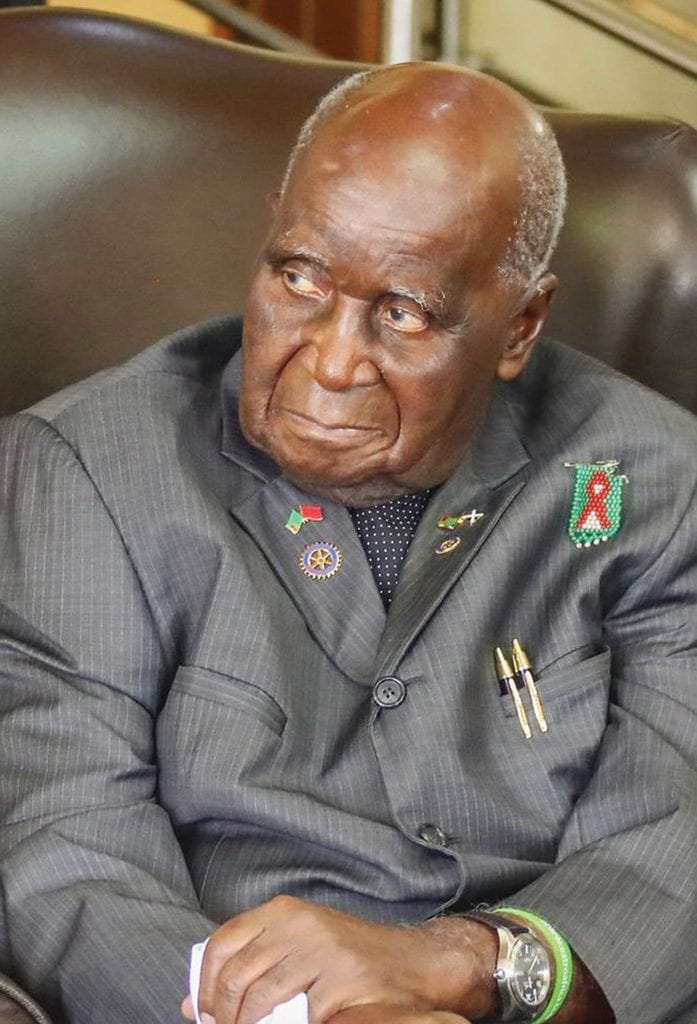
All day long on 17 June I was contacted by folks from all over the world, asking if I had heard that KK had died. Such as it should have been. Anybody that comes from or cares about Africa would have felt this loss. If Africa had a Mount Rushmore of iconic African leaders, Kenneth David Kaunda would be on it.
I first met KK, as he was affectionately known, more than 20 years ago. I knew him well before that because his reputation preceded him. I knew him not only as a founding father of modern Zambia, but as a patron saint to liberation movements across the African continent and beyond.
It was because of his reputation that I sought him out to become the first African president-in-residence at Boston University’s African Presidential Archives and Research Center, which I headed. Since then I’ve come to learn a lot about the man and his meaning for his times and the continent he loved.
The first inkling I got of how truly special Kaunda was occurred when I met with then Zambian President Levy Mwanawasa in 2002. I met with the president to tell him we were considering extending an appointment to KK to become the inaugural African president-in-residence at BU.
Mwanawasa was a man of another party and another era. Despite that, his response to our planned offer was unequivocal and clear. He said he saw KK’s appointment as an honor for Zambia and a fitting tribute to the man. Mwanawasa concluded his endorsement by saying all that he had become and all that Zambia had the potential to be was because of the foundation Kaunda laid.
By “foundation,” Mwanawasa meant the educational system Kaunda created, which provided him with an education, and the multi-party democracy KK birthed that made his presidency possible. You know a leader is special when even a political adversary respects and appreciates the personal sacrifices he made and the leadership he provided.
Old-school politician
Kenneth Kaunda was a man of great discipline and dedication, conviction and conscience, as well as humor and humanity. In some ways he was an old-school politician. He could hold a crowd captive with a song, as when he sang his rendition of “Pagan Moon,” the song he sang to his beloved Betty when he courted her. He could engage you intellectually with his great sense of history.
He often reminded me he had met every American president going back to Eisenhower. He was also a prophet, daring to speak truth to power, such as when he challenged the Brits in pursuit of Zambia’s independence or the racist regimes of South Africa and Rhodesia to relinquish their strangleholds on the indigenous populations they oppressed.
KK’s humour, courage, conviction and sense of justice were in full display in every story he told or every story I heard about him. He became a vegetarian as a result of a boycott he led against Zambian butcher shops because of discriminatory and unfair practices toward blacks. He ate all of his food cold, whether cooked or uncooked, a practice he adopted as he prepared for his pending imprisonment because of his work for Zambia’s liberation.
On the day Mandela was released from prison, with tears in his eyes, he convened his cabinet to reinstitute multiparty elections in Zambia, because with Madiba’s release, Zambia would also be free from assaults from its neighbor to the south.
Last of the ‘big men’
In an era when so much of the narrative about Africa focuses on corrupt and callous leaders, Kaunda’s passing causes us all to pause and remember when there was a time in Africa when giants walked the earth. There were “big men” with big dreams like Nkrumah, Kenyatta, Nyerere, Masire, Mandela and, yes, Kaunda.
There’s one last thing. The white handkerchief that was KK’s trademark held a special secret. At the end that he held in his hand, there was a knot, and in the knot was a small Christian cross. KK was above all, a man of faith and a man of hope. As I mourn his passing, my prayer is that Africa become that place he always dreamed it could be. If this generation of leaders could fulfil that dream, what a fitting tribute that would be to the man, the myth, the legend that was Kenneth David Kaunda.
Ambassador Charles Stith is the non-executive board chair of the Johannesburg-based African Presidential Leadership Center and chairman of the Pula Group, a U.S.-based company that invests in high-value opportunities in Africa.






